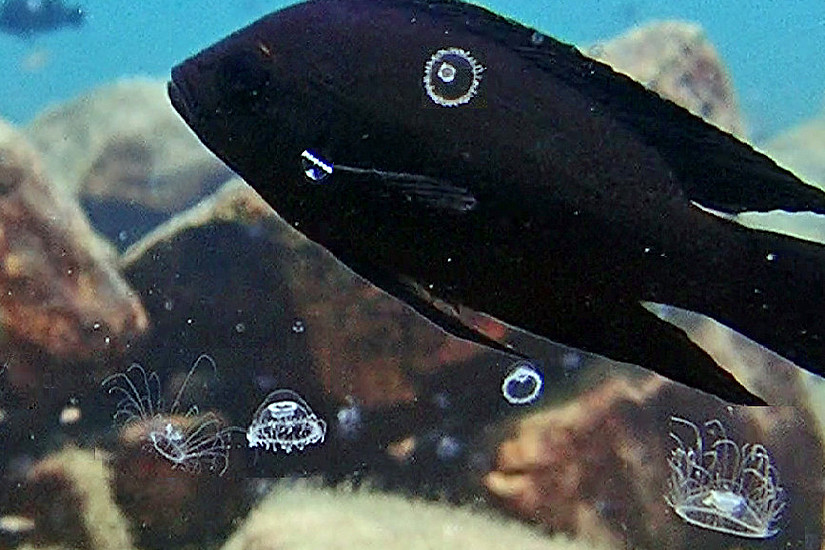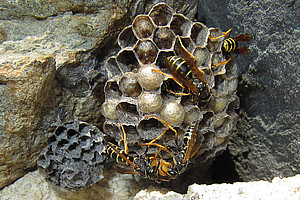Holidaymakers on beaches are not the only ones to be alarmed by swarms of jellyfish – it’s a threatening sight for fish too. Kristina Sefc, Aneesh Bose and Holger Zimmermann from the University of Graz Institute of Biology have recorded for the first time in Lake Tanganyika, one of the African Great Lakes, how the indigenous cichlid fish react to invasion by freshwater jellies (hydrozoans). “It was a bit like a weekend in a snowbound mountain hut: the fish hid under stones and in crevices, and almost disappeared from the open water where they are usually very active,” as Sefc describes it. “But eventually they run out of food supplies and feel a growing need for social contact.”
Cichlids avoid contact with the jellies because they get stung, just like we humans do. They end up being much less active than usual. For territorial fish or those tending their offspring, that has the advantage of reducing the need to defend against intruders and predators. “So they conserve energy”, explains Sefc. In the long term, however, this retreat strategy could limit their ability to find food and look for partners.
The Graz biologists were able to show that a so-called bloom of jellies has a measurable effect on the behaviour of other lake dwellers. Cichlids are territorial fish that live in shallow water and have no way to avoid the hydrozoans over a wide area. In ocean habitats there are much larger populations of jellyfish. Sefc and her team believe that their new findings could also be relevant for marine coastal areas.
Earlier studies of interactions between fish and hydrozoans have been limited exclusively to direct competition for food and predation. The plankton-eating jellyfish steal their food, sometimes devour eggs and larvae too, and can even kill small fish with their stinging cells. On the other hand they too, or the prey caught in their tentacles, can be food for some species.
The researchers at the University of Graz have just published their findings in the journal Royal Society Open Science.




